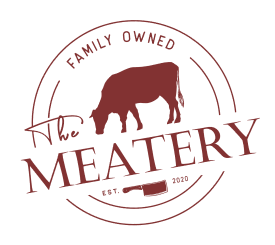The Origin Of Wagyu Beef
Wagyu beef, literally meaning "Japanese cow" (wa = Japanese, gyu = cow), represents one of the most prestigious and sought-after meats in the world. This extraordinary beef originates from specific breeds of cattle native to Japan, with a genetic lineage that can be traced back thousands of years.
The four primary Japanese cattle breeds that constitute Wagyu are:
- Japanese Black (Kuroge)
- Japanese Brown (Akage)
- Japanese Shorthorn (Nihon Tankaku)
- Japanese Polled (Mukaku)
Among these, the Japanese Black accounts for approximately 90% of all Wagyu beef production. These cattle were originally draft animals used in agriculture, which led to the development of more intramuscular fat cells to provide energy for their work. This genetic predisposition, combined with centuries of selective breeding, has resulted in the extraordinarily marbled beef we know today.
The history of Wagyu beef is deeply intertwined with Japan's cultural and agricultural development. Until 1868, consuming beef was largely prohibited in Japan due to Buddhist influences. Following the Meiji Restoration, the government began encouraging beef consumption, leading to the careful cultivation of these precious cattle breeds.
Marbling And Meat Quality
The defining characteristic of Wagyu beef is its exceptional marbling, known as shimofuri in Japanese. This intricate network of intramuscular fat creates a unique snowflake-like pattern throughout the meat, setting it apart from other beef varieties.
What makes Wagyu marbling truly special is its composition. The fat contains a higher percentage of monounsaturated fats, particularly oleic acid, compared to other beef varieties. This unique fat composition contributes to several distinctive qualities:
- Lower melting point, creating the signature "melt-in-your-mouth" texture
- Rich, buttery flavor profile
- Tender, juicy meat even when cooked to higher temperatures
The Japanese grading system for Wagyu is extraordinarily strict, evaluating various factors including:
- Marbling score (BMS: Beef Marbling Standard)
- Meat color and brightness
- Fat color and quality
- Firmness and texture
- Overall quality of the meat
Sustainability And Farming Practices
Traditional Wagyu farming practices emphasize ethical and sustainable production methods that prioritize both animal welfare and environmental responsibility. These practices have been refined over generations to produce the highest quality beef while maintaining ecological balance.
Key aspects of Wagyu farming include:
- Small-scale operations with personal attention to each animal
- Stress-free environments promoting natural behavior
- Carefully controlled diets using local, natural feed
- Extended raising periods (typically 28-30 months)
- Strict adherence to traditional breeding methods
Modern Wagyu farmers often incorporate innovative sustainable practices while maintaining traditional methods. This includes implementing renewable energy systems, waste management programs, and water conservation techniques. The result is a production system that not only yields exceptional beef but also demonstrates environmental stewardship.
Why is everyone obsessed with Wagyu?
The global obsession with Wagyu beef can be attributed to several compelling factors that make it a truly unique culinary experience. First and foremost, its extraordinary taste and texture create an unparalleled dining experience that many describe as life-changing.
Key factors driving Wagyu's popularity include:
- Exceptional flavor profile and umami richness
- Unique texture and mouthfeel
- Exclusivity and luxury status
- Cultural significance and heritage
- Social media influence and food culture
The limited availability and strict production standards have created an aura of exclusivity around Wagyu beef, making it a sought-after luxury item. This rarity, combined with its genuine quality differences, has cemented its position as the pinnacle of beef excellence.
Ground Wagyu Vs Steak Wagyu Comparison
While both ground Wagyu and Wagyu steaks offer superior quality compared to conventional beef, they serve different culinary purposes and provide distinct experiences.
Ground Wagyu characteristics:
- More affordable entry point to Wagyu beef
- Higher fat content than regular ground beef
- Excellent for burgers and meat-based sauces
- More consistent texture throughout
Wagyu steak characteristics:
- Premium eating experience with visible marbling
- Complex flavor development during cooking
- Superior texture and tenderness
- Higher price point reflecting quality and scarcity
Types Of Wagyu (e.g., Kobe, Matsusaka)
Different regions in Japan produce distinct varieties of Wagyu beef, each with unique characteristics and reputations. The most renowned types include:
- Kobe Beef: From the Hyogo Prefecture, must meet strict certification standards
- Matsusaka Beef: Known for exceptional marbling and tenderness
- Omi Beef: One of Japan's oldest beef brands
- Miyazaki Beef: Multiple winner of Japan's "Wagyu Olympics"
Each variety must meet specific regional standards and certification requirements to bear its prestigious name. These standards encompass factors such as breeding lineage, raising conditions, and meat quality metrics.
Is Wagyu healthier than regular beef?
While Wagyu beef is known for its high fat content, its unique nutritional profile offers several potential health benefits compared to conventional beef:
- Higher ratio of monounsaturated to saturated fats
- Rich in omega-3 and omega-6 fatty acids
- Contains more conjugated linoleic acid (CLA)
- Higher concentrations of essential minerals
Research suggests that the unique fat composition of Wagyu beef may have positive effects on:
- Cardiovascular health
- Cholesterol levels
- Anti-inflammatory responses
- Overall nutritional value
However, it's important to note that Wagyu beef should still be consumed in moderation as part of a balanced diet, regardless of its potentially beneficial properties.


